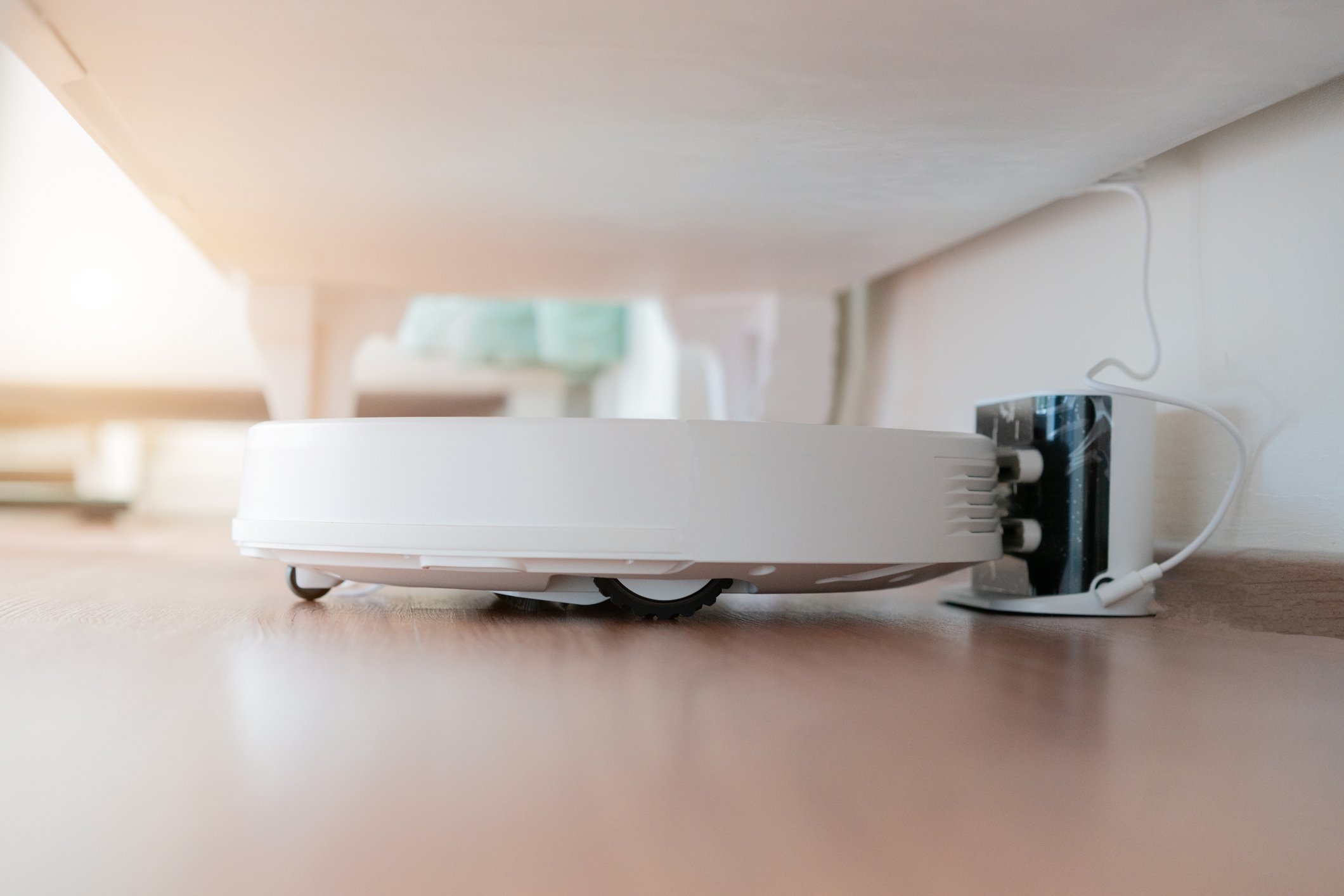Every day, Wall Street analysts upgrade some stocks, downgrade others, and "initiate coverage" on a few more. But do these analysts even know what they're talking about? Today, we're taking one high-profile Wall Street pick and putting it under the microscope...
Wall Street megabank JPMorgan downgraded iRobot (IRBT +0.00%) stock to underweight two years ago, back when the stock was selling for $34 a share. JPMorgan was wrong about iRobot...until all of a sudden, it was right.
When iRobot announced its fiscal Q4 results yesterday, its stock went tumbling -- crashing more than 30% despite reporting strong quarterly growth and even stronger profits. JPMorgan says the crash was justified (even if it took a bit longer to happen than it had expected). Now that it has happened, though, JPMorgan is at long last relenting on its negative call against iRobot.
Here's what you need to know.

Image source: Getty Images.
What iRobot said
By all accounts, iRobot had an excellent quarter in Q4, and a great close to the year. Sales in the Christmas selling season soared 54% to $327 million, beating analyst expectations with a stick. iRobot earned GAAP profits of $0.16 per share, down 67% from last year's Q4. However, its pro forma profits (which exclude the effects of tax reform) were roughly twice what Wall Street had expected.
For investors who like numbers, there was a lot to like in these numbers.
So what went wrong?
Unfortunately, with 2017 in the bag, investors quickly turned their attention to what iRobot would be able to do for them in 2018 -- and that's where the trouble started.
Issuing new guidance for 2018, iRobot predicted it will book i$1.05 billion-$1.08 billion in sales this year, and earn between $2.10 and $2.35 per share on those sales. Assuming iRobot delivers on its promises, this should work out to at least 19% growth in both sales and earnings -- and potentially as much as 33% growth in profits this year. (Management further promised to keep on growing sales at 19% or better over the next three years, while growing operating profit margins by as much as 22%, resulting in overall profits growth much greater than 20%.)
Problem is, while Wall Street was pleased with 2018's revenue number, it had predicted iRobot would earn $2.70 this year. Disregarding what iRobot said about its growth rate over the next three years, investors chose to fixate on the below-consensus 2018 profits prediction -- and sold off the stock.
Is that the right call?
JPMorgan argues investors were "justified" in selling off iRobot yesterday, in a note covered on TheFly.com this morning. Regardless, now that the sell-off has happened, the analyst says iRobot stock finally offers a more "balanced risk/reward." Enough so, in fact, that JPMorgan is moving to upgrade the stock to neutral.
JP's peers at investment banker Raymond James, in contrast, think the sell-off is overdone, and are sufficiently intrigued by iRobot's new and improved stock price to upgrade it to outperform. Which of these calls is right?
Here's how I look at it:
Based on iRobot's latest numbers, it appears the company earned $51 million in GAAP profit last year, and generated a similar level of free cash flow -- $52.9 million. Weighed against the stock's $1.7 billion market capitalization, and adjusting to take account of the company's cash-rich balance sheet, I get an enterprise value of almost precisely $1.5 billion for iRobot stock.
Basically, iRobot stock now sells for about 30 times earnings, whether you value it on earnings or on free cash flow. To justify this valuation, I'd want to see iRobot stock grow its profits at about 30% annually over the next five years. Can it do that?
Well, actually, it maybe it can -- at least for a year or so. In fact, working off the top of iRobot's guidance for 2018, management is saying it might grow profits 33% this year. Working off its longer-term three-year prognosis, though, 19% sales growth, times a 22% improvement in operating profit margins, suggests earnings should grow at closer to 23% annually over the next three years -- maybe a bit faster on the bottom line if lower tax rates give it an additional boost.
Long story short, I think 30% growth might be achievable for iRobot, in which case, the stock's current valuation could be justified. Still, I wouldn't mind seeing iRobot stock get just a wee bit cheaper before buying -- just in case I'm wrong.





